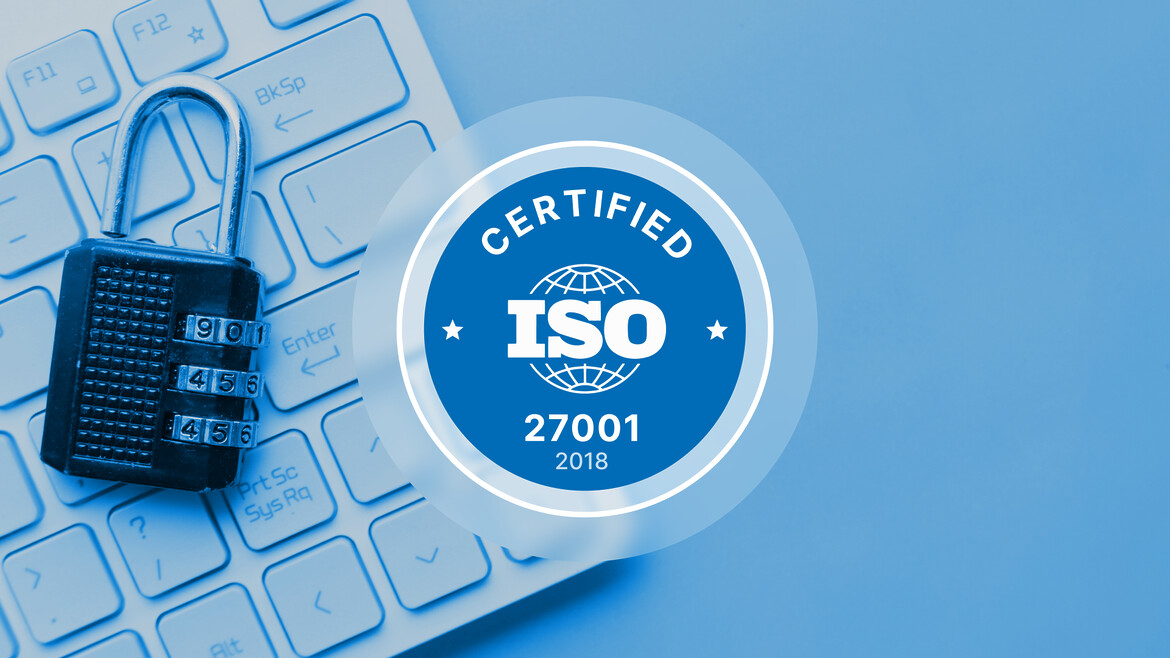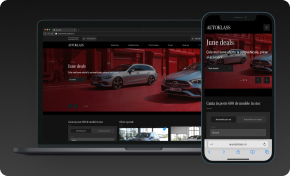Ensuring data security and privacy is a crucial challenge for all organizations worldwide. As organizations accumulate, analyze, and store vast amounts of sensitive data, they are required to comply with regulations like the General Data Protection Regulation (GDPR) as they become targets for security breaches. For companies looking to have their data protected strongly, the alliance with an ISO 27001-certified technology provider can be considered a strategic action toward cybersecurity.
If we look at the IBM report of data breaches in 2023, we can see that the global average cost of data breaches was USD 4.45 million compared to USD 3.89 million three years ago. This means there was a 15% increase in cost, considering an estimated 14% increase in business numbers worldwide. Besides, the average savings for organizations that have already implemented AI and automation in their security were USD 1.76 million compared to the ones that haven’t.
As we analyze the figures above, this article will review the core aspects of GDPR and ISO 27001 in ensuring your business’s data protection.
Navigating the GDPR Landscape: What Businesses Need to Know
Demystifying GDPR for Business Operations
Digital Transformation for Competitive Advantage
Empowering Your Business with Tailored Digital Solutions
Explore Digital TransformationThe General Data Protection Regulation (GDPR) is the European Union (EU) regulation that provides a framework for the protection of individuals’ personal data and also for them to be able to maintain control of how their information is used. With GDPR, the EU is extending its reach beyond its borders, and organizations that handle EU citizens’ data are also covered by it. Without any doubt, digitalization is a turning point moment since it turns the legal framework of data privacy and protection into a ‘must-have’ requirement. While GDPR is legally binding, organizations should acknowledge that it is also a fundamental part of the data management approach.
The Real Cost of Ignoring GDPR Compliance
The fact that not being compliant with GDPR can be rather dangerous is not a myth. In case a company does not follow the sanctioned rules, it will be heavily fined, and severe legal consequences will be imposed on that company. A very recent example is Meta (formerly known as Facebook), which was responsible for holdingpersonal data and penalized for severe privacy violations. This clearly indicates that people and authorities are no longer patient with such non-compliance policies. Therefore, financial impacts and the company’s reputation will suffer if they don’t follow the GDPR regulations.
The Role of ISO 27001 in Enhancing Data Security
Understanding the ISO 27001 Standard
ISO 27001, the standard that is widely recognized as the best practice for information security management systems (ISMS), offers a methodical approach to ensuring data security. It concerns personal data and an organization’s whole spectrum of confidential data. ISO 27001 sets a particular focus on risk management, perpetual improvement, and compliance with security controls. In addition, it is in full compliance with the GDPR foundations, so it is the perfect tool for organizations working towards compliance.
Advantages of Collaborating with ISO 27001 Certified Entities
Partnering with an ISO 27001-certified company offers several advantages:
- Comprehensive Risk Management: With ISO 27001 in place, your organization is guaranteed a thorough risk assessment process that will allow you to identify weaknesses and take corrective and preventive measures beforehand.
- Legal and Regulatory Alignment: By using the norms of ISO 27001, your organization will inherently satisfy GDPR requirements.
- Customer Confidence: The ISO 27001 accreditation will give the clients more confidence, and they will be assured that their data is in the hands of experts.
Strategies for Integrating GDPR and ISO 27001 into Business Practices
Practical Steps for Achieving GDPR Compliance
#Educate Your Workforce
GDPR compliance starts with awareness. Ensure that every employee – from executives to developers – understands their roles in protecting personal data. Regular training sessions on data privacy, handling sensitive information, and recognizing potential risks are crucial. By fostering a culture of vigilance, you empower your team to become proactive data-protectors.
Conduct Privacy Impact Assessments (PIAs)
PIAs evaluate the impact of data processing activities on individuals’ privacy. When implementing new systems or processes, assess their potential effects on data subjects. Consider factors like data collection, storage, and sharing, as PIAs help identify risks early, allowing you to address them effectively.
Implement Data Minimization and Purpose Limitation
GDPR emphasizes collecting only the necessary data for specific purposes. Review your data collection practices by questioning whether you are gathering more information than required. Minimize data collection to what’s essential for your business operations and clearly define the purpose for which each piece of data is collected.
Regularly Assess Risks and Update Security Measures
Risk assessments should be ongoing on a daily base. As your business evolves, so do risks. Therefore, regularly evaluate vulnerabilities, threats, and potential impacts. Adjust your security measures accordingly by including patch management, vulnerability scanning, and penetration testing.
Experience Expert IT Consultancy
Transformative Strategies for Your Technology Needs
Discover IT ConsultingMonitor Data Processing Activities
Transparency is key. Maintain records of data processing activities and document who accesses data, when, and why. Implement logging and monitoring mechanisms while detecting and responding promptly to any unauthorized access or breaches.
Emphasize Continuous Training
GDPR compliance isn’t a one-time effort. It’s a constant process that requires regular training for your employees to stay informed about evolving regulations and security best practices. Keeping them updated on changes to your data protection policies and procedures is mandatory if you want them to be proactive data protectors.
Criteria for Choosing the Right Tech Partner
Selecting a technology partner with ISO 27001 certification requires evaluating their commitment to data security, track record, and alignment with GDPR principles. Considering factors such as transparency, incident response capabilities, and scalability is a successful way to find your data’s perfect match.
ISO 27001 Certification
When selecting a technology partner, prioritize ISO 27001 certification. Look for evidence of their commitment to information security. An ISO 27001-certified partner demonstrates adherence to rigorous standards, ensuring that your data is handled securely.
Track Record and References
Evaluate the partner’s track record. Have they successfully assisted other businesses with GDPR compliance? Seek references or case studies. A proven history of helping clients navigate GDPR challenges is a positive sign.
Alignment with GDPR Principles
Ensure that your tech partner understands GDPR requirements. They should be well-versed in data protection, privacy rights, and breach notification obligations. Ask about their incident response procedures and how they handle data breaches.
Scalability and Flexibility
Consider your future needs. Is the partner equipped to scale their services as your business grows? Can they adapt to changing compliance requirements? Flexibility is essential in a dynamic regulatory landscape.
Risk Mitigation
A reliable partner helps you identify and mitigate risks. They bring fresh perspectives, assess vulnerabilities, and guide you toward proactive solutions. ISO 27001 emphasizes comprehensive risk assessment and risk treatment. By identifying threats and vulnerabilities, organizations can proactively protect sensitive information.
Redefine Your Project with Our Development Teams
Fuel Your Projects with Tailored Software Development Expertise
Get Your Development TeamHyperSense’s Dedication to Data Security and GDPR Compliance
Our Commitment to Upholding Data Security Standards
We at HyperSense, as an ISO 27001-certified software development company, prioritize data security as we tailor our software architecture to align with GDPR requirements. Our adherence to GDPR and ISO 27001 standards ensures that client information remains confidential and protected, as our protocols include encryption, access controls, and regular audits.
Hypersense Software takes data security seriously and employs various measures and protocols to safeguard sensitive information. Here are some key practices they follow:
- Role-Based Access Control (RBAC): Hypersense Software establishes and enforces RBAC within its systems. This ensures that different types of users (guests, authenticated users, authorized personnel, and developers) have appropriate access levels to data.
- Security Software: At Hyperses we install and regularly update antivirus, anti-malware, and firewall software to detect and block threats while endpoint security solutions provide real-time protection for devices and networks.
- Patch Management: Hypersense Software keeps all software, operating systems, and applications up to date to address known vulnerabilities. Regular patching helps prevent the exploitation of security flaws.
- Data Classification: We classify data based on its sensitivity level. This allows us to apply appropriate security controls to protect critical assets.
- Encryption: At Hypersense Software we use encryption techniques to secure data both in transit and at rest as we may employ protocols like Elliptic Curve Diffie-Hellman (ECDH) for secure data transmission and storage.
For more insights, you can explore their article on ISO-Certified Software Development, which emphasizes quality assurance and security.
How HyperSense Empowers Clients in GDPR Compliance
Client testimonials and case studies highlight how HyperSense’s tailored solutions enhance security and compliance. From customized software architecture to proactive risk management, we empower businesses to navigate the GDPR landscape confidently and securely.
The Path to GDPR Compliance through Strong Partnerships
In conclusion, selecting the right partners for GDPR compliance and data security is paramount for organizations navigating the digital landscape. While ISO 27001 aligns perfectly with GDPR requirements for data protection, integrating these practices helps create a robust framework for data security and privacy in the face of cyber-attacks.
Data security is a collective effort, so organizations should seek partners who understand the intricacies of GDPR and ISO 27001. Let’s discuss and discover how Hypersense can help you thrive in an increasingly data-driven world.










